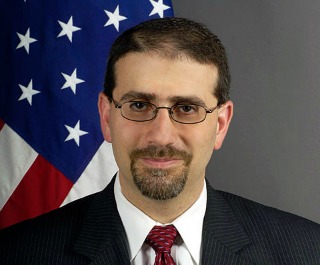—Alon Ben-David, military affairs reporter and analyst for Channel 10 News, writes in Maariv that Israel chooses to ignore opportunities for peace with Hamas.*

Q. Does the absence of a Palestinian state threaten Israel? How?
A. Yes, it threatens Israel, and in more ways than one.
Without an Arab-state political affiliation for the Palestinians of the West Bank and Gaza Strip, Israel is
universally seen as their occupier. Not a single state in the world recognizes the terms “Judea and Samaria” or
Israel’s annexation of East Jerusalem. The possibility of restoring a pre-1967 political link, say by
affiliating the West Bank in some way with Jordan, has ceased to be realistic in Arab eyes for several decades.
This is so despite the fact that some Israeli right-wingers cut off from regional realities and international
standards of human rights argue that West Bank Palestinians could enjoy autonomy under Israel and vote in
Jordanian elections.
Nor is the paternalistic proposal put forth by some on the Israeli right—to the effect that Palestinians in the
West Bank can in perpetuity enjoy “human” rights but not citizenship rights on the land where they live--
viable in the eyes of Palestinians or anyone else in the world. Palestinian Arabs today identify as
Palestinians in a political sense. If they cannot achieve sovereign statehood, the only fallback position they
are likely to recognize is Israeli citizenship within the framework of a single state.
This brings us to the demographic issue. Most demographers today argue that there are already more Arabs than
Jews in the land between the Jordan River and the Mediterranean. Some on the Israeli right argue that the
totality of Arabs is “only” 40 percent of the total population, meaning Jews constitute 55 percent (another
five percent of Israelis are neither Jewish nor Arab). In some cases this figure is achieved by ignoring the
two million Palestinians in the Gaza Strip, a highly problematic geopolitical determination. In other cases it
is achieved by radically underestimating the number of Palestinians in the West Bank and ignoring the 300,000
Palestinians in East Jerusalem.
One way or another, even an Israeli state with a 40 percent (and growing!) Arab minority cannot claim to be
intrinsically Jewish. As for a non-democratic state that favors its Jewish over its Arab inhabitants, this is
anathema to the vast majority of Jews, to say nothing of the international community. It places Israel in the
global family of racist, fascist countries whose prospects for enlightened progress are zero.

On September 14th 2017, APN hosted Ambassador Daniel Shapiro, America’s former ambassador to Israel, for a briefing call on prospects for Israeli-Palestinian peace.
Americans for Peace Now has always contended – and public opinion polls have always validated – that our policy positions on Israel much better reflect the sentiments and convictions of American Jews than the hardline positions of our American Jewish right-wing adversaries.
A current case in point is today’s American Jewish Committee poll, carried out late last month among a national sample of Jews over 18.
APN has signed on to a letter, along with 15 other organizations, calling on Congress to stand in the way of efforts by the Trump Administration to terminate or sabotage US participation in the Iran nuclear deal.
Read the letter here and below:
by Daniel C. Kurtzer, former U.S. ambassador to Israel and Egypt and professor of Middle East policy studies at Princeton University's Woodrow Wilson School of Public and International Affairs.
Remember the two-state solution as a means to achieve Middle East peace? It has been a pillar of American foreign policy, certainly since President George W. Bush announced U.S. support in 2002. But in three quick strokes over the past few weeks, the Trump administration has demonstrated it really is not very serious about pursuing a two-state solution.
The first shoe dropped when a team of presidential emissaries, led by Jared Kushner and Jason Greenblatt, visited the Middle East to talk to the Israelis and Palestinians. State Department spokesperson Heather Nauert was asked whether the Trump administration supports a two-state solution. Her response was shocking:
“We are not going to state what the outcome has to be. It has to be workable to both sides. And I think, really, that’s the best view as to not really bias one side over the other, to make sure that they can work through it. It’s been many, many decades, as you well know, that the parties have not been able to come to any kind of good agreement and sustainable solution to this. So we leave it up to them to be able to work that through.”
Nauert was following the Trump script, as he stated months earlier: “I’m looking at two-state and one-state and I like the one that both parties like. I’m very happy with the one that both parties like.”
Nauert’s use of the word “bias” is highly misleading. She is hardly calling for a neutral, non-biased approach to the Middle East conflict. In fact, her words indicate that the Trump administration itself is extremely biased — in favor of hardliners in Prime Minister Benjamin Netanyahu’s coalition who want the United States and Israel to abandon the two state outcome. These radicals cheered Trump’s comments in February and probably celebrated Nauert’s recent non-answer answer.